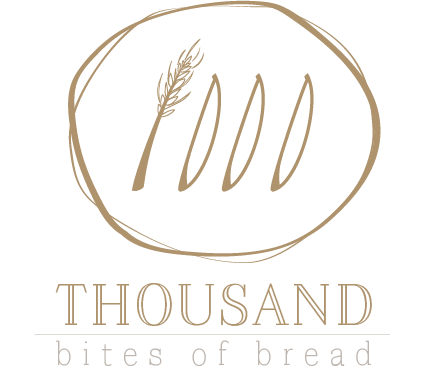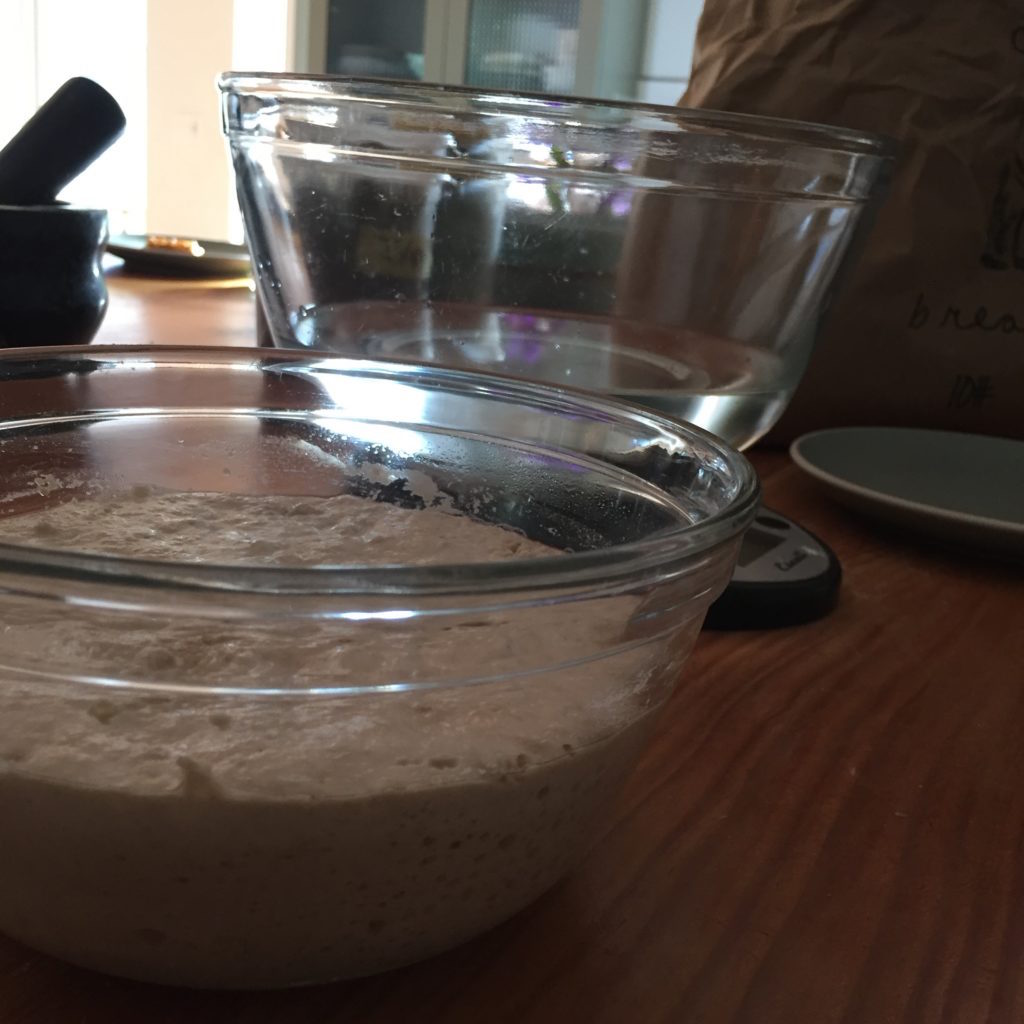Life sets a pace. For all of us, we wake each day to a condition of expansion and simultaneous contraction. Life gives us dichotomous opportunities to push ever outward, and then snaps us back into our selves as our essence tugs around the edges of our experiences.
It is in this luscious ferment of each new day that we grow and our lives become full.
Sometimes we rise up to our day slack-jawed with internal heat. Other days we crawl towards an imaginary finish line through the motions of what’s before us.
Most of the time we realize that we’re not alone, but part of a community where any hapless change in an environment can alter how it all hangs together.
We are complex ecosystems in a complex ecosystem.
Bread is no different.
Bread starts as component parts that come from their own varied and inconsistent environments. It starts as a seed of grass and an evaporate of the ocean. What could be more elemental? And yet, each of these factors alone has a bearing on what makes each loaf unique. What kind of grass seed? How much rain? What season? When was it harvested?
And that’s even before you mix the dough.
The thing about breadmaking is that it’s simultaneously simple and complex. Take four humble ingredients and mix them together and wait a while. There. Bread.
At the same time, it’s a living system and living systems are deliciously complicated. Every little factor plays into the making of a lifesong. The minute you think you have it down, a hot day comes along to keep you wondering. Or you get a new batch of flour and it’s mixing more slack than the last bag and you’re forced to think about all kinds of factors, from gluten strength to rising time. Bread really is a meditation if you slow down and stay mindful. That’s what makes it so captivating. You learn by walking into the quotidian wild of it, convening and conversing enough that you kind of understand each other. A lot like life itself. And like life, there are failures… and you’re best off learning from them.
So I keep making bread.
I keep watching it expand with the gases of tiny creatures. I notice how the dough I create pulls inward, while allowing the air inside to stretch it to its limits. I contemplate the chain reaction of adding water to flour and how a whole world of microbes and enzymes creates a perfect ecosystem to turn their environment into the bread we eat.
But life charges on around me. I get busy. My daughter has somewhere to be. My son falls and scrapes his leg when I’m just headed out the door. I rush to get dinner on the table. A meeting is cancelled and I’m not showered and dressed, anyhow. Sometimes I dart through my day from one thing to the next and before you know it, I’ve been mindful of just about nothing.
I’ve had a week full of this and it shows. Especially in my bread.
This week, I no sooner took a loaf out of the oven that had been behaving strangely on the way in, but rose with what looked like amazing oven spring and I thought, Oh yeah, I have this whole bread-baking thing in the bag. It was an oatmeal-porridge boule, covered with gorgeous flaked oats and wafting a creamy, starchy tang. I turned away all smug and rushed back to my loaded day, pacified that I could just keep trudging on without stopping to reflect.
A few minutes later, I walked by the cooling loaves only to discover they’d sunk. The life inside them had become a black hole of gluten structure. Ugh. They were collapsing, and my ego along with them. Unsalvageable.
I picked myself up and dusted myself off and remembered something else from earlier in this oh-so-busy week. I’d been making crackers and let them ferment a little too long and when I was rolling them out, the dough kind of started to melt like there was nothing holding it together.
Sure enough, the day after my ego-crushing loaf, my phone rang. It was a friend who needed help. She’d started a batch of bread the day before, and it was looking great at first. “Then it just sort of fizzled out…” As the details of her baking day unfolded, a picture of melting, deflating dough came clear to me and before I even started answering her questions, I thought, Okay, universe. I get it. Here is this week’s lesson: Overproofing.
Overproofing is what happens when your yeast has diminished its food supply and starts to get all lethargic, while at the same time, your gluten structure starts to break down. Many factors affect how dough ferments (i.e. proofs) including time, temperature, amount and type of yeast, the presence of salt or sugar, and dough pH. That’s a lot to think about. Here’s the thing, though. The more bread you bake and the more dough you handle, the more you’re coaxed into paying attention to the process in minute detail.
I overproofed my dough. I let it go too long on a pretty warm day. Then I left it in the refrigerator to retard a day longer than I normally would. I got busy and left it to it’s own devises and it did exactly what it was supposed to do, which is to lose its oomph and get all gummy and weird inside. The gluten structure started to malfunction and my precious oatmeal porridge loaf had a breakdown.
A good reminder that I still have much to learn, and that’s really why I do it. I love it enough to keep at it day after day. I’m curious enough about its being, and I still want to spend time with it. Isn’t that exactly what love is? We don’t love because we’re perfect at it; we love because we want to bear witness to its unfolding. We love because we have so much to learn from the journey of it.
We love through all the overproofing and collapsed hopes and we remind ourselves to slow down and be mindful. Pay attention to the pace that life sets, even on the overburdened days. This all adds up to something good to eat in the end, and nothing good to eat comes without a bit of work.


Your summation of Life, Love and bread are so elegant, Adrian. And a fantastic reminder to savor our breathes…To be mindful and present…A tall order on some days; yet worth it when the bread rises and reminds us of the inherent goodness in Life.
<3